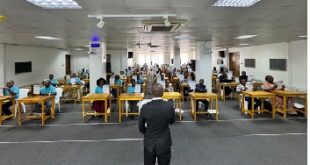The Centre for Constitutional Values, School of Law, BML Munjal University organized a day-long discussion on the life and works of Professor Upendra Baxi at the India International Centre, New Delhi, on Saturday, 8th February 2025. Prof. Upendra Baxi is Professor Emeritus at the University of Warwick and is the former Vice Chancellor of Delhi University and the University of Surat. His extraordinary life traversed scholarship and activism. His open letter to the Chief Justice of India, on the Mathura Rape Case brought rape law reform to the center of law reform initiatives, while his work on the Bhopal Gas Tragedy, and the famous Agra Women’s Home brought questions of structural injustice in the law to the forefront. The discussion was organised around four thematic panels on the Constitution of India inspired by the recently published volume titled “Of Law and Life” published by Orient Blackswan. The volume is a series of conversations between Prof. Baxi and four legal academics over a period of over eight years that sheds light on his life through landmark events such as the Emergency, the Mandal Commission, the Bhopal Gas Tragedy and his stints in the US, UK, and Australia.
The event brought together eminent academics including Prof. Sudhir Krishnaswamy, Vice Chancellor of NLSIU Bangalore, Prof. Rajeev Bhargava (former Director of CSDS), Prof. Mrinal Satish (former Chairperson of the Delhi Judicial Academy), Prof. Arun Thiruvengadam (eminent constitutional law scholar), as well as activists such as Mr. Harsh Mander and Ms. Kavita Srivastava. Eminent lawyers defending civil liberties and public causes such as Mr. Trideep Pais, Mr. Ritwick Dutta, and Mr. Apar Gupta also spoke at the event. This was followed by a public lecture on the concept of Human Dignity by Professor Susan Marks, Professor of International Law at LSE Law School.
On the brisk morning of February 8th, a crowd of about 150 lawyers, students, and academics waited at the Kamala Devi Complex of the India International Centre, dotted with pictures and quotes providing glimpses of one of the most prolific and influential legal minds in India. The palpable excitement and anticipation of the crowd bubbled into applause as the guest of honour, Professor Upendra Baxi, entered the hall. Despite the intellectual tone and tenor of the event, there was a strong sense of shared celebration. This unlikely combination of celebration and intellectual rigour marked the entire event.
The day began with Professor Shyam Menon, Vice Chancellor of BML Munjal University, welcoming everyone to the event. This was followed by Professor Baxi’s address, which reflected on whether “accountability” was fading from public life, and how it ought to be thought of in terms of accountability of activists, lawyers, and academics. In a speech marked by intellectual depth and peppered with humour, he raised questions on accountability, rights, and justice that formed the basis of the first three panels. The panels discussed wide-ranging issues of freedom, sustainability, law reform and practice, the use and misuse of law, the role of institutions such as courts, civil society groups and law schools, and the scope of justice within and through these institutions. The audience was left contemplating critical questions, such as: What does the shift in terminology from “global warming” to “climate change” reveal about the individualization of responsibility? How is justice through courts becoming increasingly contingent on media discourse and public engagement? Does the “feel-good” factor of legal aid obscure the violence of a dysfunctional and inaccessible legal aid system? How do democratically elected regimes persecute social activists? Professor Baxi’s scholarship formed the foundation for these discussions, and his questions and comments elevated the conversation at every turn. The last panel was a tribute to Professor Baxi as a thinker, scholar, empathetic teacher, and administrator. It brought together anecdotes and recollections from Professor Baxi’s colleagues, friends and students, and the authenticity of conversations during this panel left everyone asking for more.
The four panel discussions were followed by Professor Susan Marks’ Public Lecture, titled ‘Dignity: A Worldly Perspective’. Drawing from international law, the laws and constitutions of various countries (notably South Africa, Germany and India), and compelling case studies, Professor Marks urged the audience to think about dignity as a lived experience rather than an abstract concept, and to question the normative ideal of universal human dignity against the widespread indignity of human life. A thoughtful and critical session of questions and comments following the lecture brought the proceedings of the day to a close, leaving everyone intellectually richer and hungry to learn more.
 Newspatrolling.com News cum Content Syndication Portal Online
Newspatrolling.com News cum Content Syndication Portal Online







